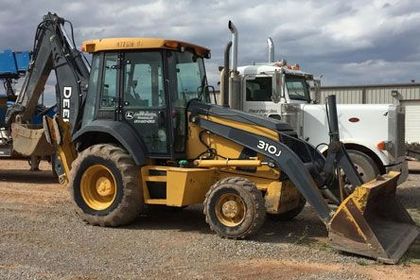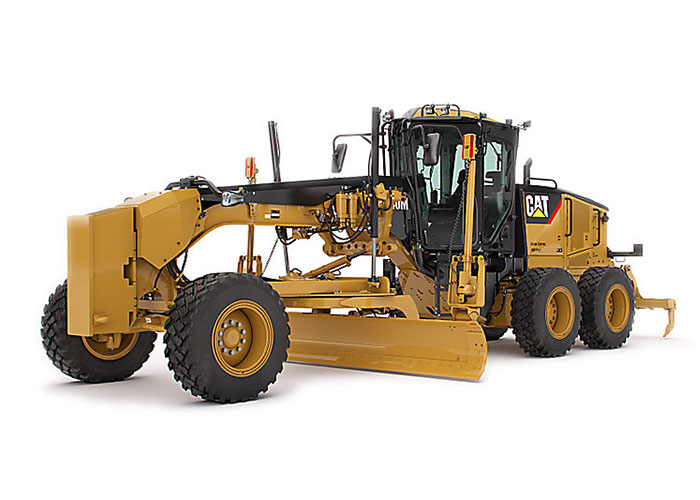Superior rentals squeeze tools: operator’s checklist
Wiki Article
A Comprehensive Guide to the Various Kinds Of Oil Field Equipment and Pipeline Equipment Available
The oil and gas market depends heavily on specific devices for effective extraction and transportation. Different sorts of machinery, from drilling rigs to tank, play vital roles in this complex process. Each tool offers distinctive features that add to overall operational success. Comprehending these elements is important for any individual associated with the industry. As the market progresses, so also do the modern technologies that sustain it. What advancements are on the horizon?
Drilling Rigs: The Backbone of Oil Exploration
Drilling rigs function as the vital equipment in the domain of oil expedition, enabling business to access hydrocarbon books hidden deep below the Earth's surface area. These rigs can be found in various types, consisting of land rigs, offshore rigs, and mobile devices, each designed to operate in particular environments. Outfitted with advanced innovation, piercing rigs can penetrate geological formations with precision, making certain efficient resource extraction. The structural integrity and operational capabilities of these rigs are critical, as they need to withstand severe problems and substantial pressures. The choice of a drilling gear influences the total task price and timeline, making it a vital factor to consider for oil firms looking for to enhance their exploration efforts and maximize efficiency in their procedures.Pumps: Important for Liquid Movement
In the oil extraction procedure, the duty of pumps is considerable, helping with the motion of fluids throughout numerous stages of manufacturing. Pumps are crucial for moving petroleum, water, and other liquids from below ground tanks to the surface and afterwards via pipelines to refineries. They come in various kinds, including centrifugal, favorable variation, and submersible pumps, each offering certain purposes based upon the fluid qualities and functional demands. Centrifugal pumps are typically used for their performance in high-flow applications, while positive variation pumps master managing thick fluids. The selection of pump impacts general effectiveness, operational security, and upkeep costs. Proper option and upkeep of pumps are crucial for maximizing production and lessening downtime in oil field procedures.Valves: Managing Flow and Pressure

Valves play an essential function in taking care of the circulation and stress of liquids within oil areas and pipes. Numerous kinds of shutoffs serve distinctive applications, each made to fulfill particular functions essential for effective operation - Superior Oilfield Rentals oilfield. Recognizing the features and usages of these valves is essential for enhancing system efficiency and safety
Sorts of Valves
Essential elements in oil area procedures, shutoffs play an essential function in regulating the circulation and pressure of fluids within pipelines and devices. Different kinds of shutoffs are made use of to meet the varied requirements of oil and gas production. Typical kinds consist of gateway shutoffs, which provide a straight-line flow and minimal pressure drop; world valves, recognized for their throttling capacities; and ball shutoffs, identified for their quick on/off control. Furthermore, check shutoffs prevent backflow, while butterfly shutoffs offer a light-weight remedy for controling circulation. Each valve kind is designed with specific products and setups to stand up to the severe conditions frequently located in oil fields, guaranteeing integrity and effectiveness in procedures. Recognizing these types is crucial for reliable system administration.Valve Applications and Features
While various kinds of valves serve distinctive purposes, their main applications revolve around managing circulation and stress within oil and gas systems. Valves such as entrance, globe, and sphere shutoffs regulate liquid movement, guaranteeing peak efficiency and safety. Entrance shutoffs are commonly used for on/off control, providing very little circulation resistance. Globe shutoffs, on the various other hand, offer exact circulation regulation, making them appropriate for strangling applications. Ball valves are preferred for their fast procedure and limited sealing capacities. Additionally, pressure alleviation valves are critical for protecting against system overpressure, guarding devices integrity. On the whole, the ideal selection and application of shutoffs improve operational effectiveness, making sure the reliable transportation of oil and gas through pipelines and processing facilities.Compressors: Enhancing Gas Transport
Compressors play a critical duty in the reliable transport of gas, ensuring that it moves smoothly through pipelines over fars away. These devices enhance the pressure of gas, allowing it to overcome rubbing and altitude adjustments within the pipeline system. Furthermore, compressors help with the balancing of supply and demand, suiting changes in intake and production prices. Different kinds of compressors are used in the industry, including centrifugal, reciprocating, and rotating screw compressors, each offering distinctive advantages based on the operational demands. Normal upkeep of these compressors is vital to make the most of effectiveness and decrease downtime, ultimately adding to a trusted gas transportation network. Their vital feature emphasizes the relevance of compressors in the general oil and gas infrastructure.Storage Tanks: Safe and Reliable Liquid Administration
Effective transportation of natural gas counts on numerous support group, among which is the appropriate management of storage space tanks. These containers play a necessary function in securely including fluids, making sure that operational performance is maintained while decreasing ecological threats. Created from resilient materials, they are made to hold up against high stress and destructive aspects. Correctly sized and strategically situated, tank help with the smooth flow of natural gas and various other liquids, avoiding bottlenecks in supply chains. Normal upkeep and tracking are crucial to find leaks or architectural concerns, promoting safety and conformity with governing standards. Inevitably, the efficient monitoring of storage space tanks is important for the overall integrity and reliability of the oil and gas industry's liquid handling systems.
Pipeline Equipments: Infrastructure for Transport
Pipeline systems act as the foundation of the oil and gas industry, helping with the reliable transport of hydrocarbons over substantial distances. These systems consist of numerous parts, including pipes, valves, pumps, and compressors, all meticulously developed to assure seamless flow. The materials made use of in pipeline construction, frequently steel or high-density polyethylene, are selected for toughness and resistance to deterioration. Pipeline networks can span throughout land and water, connecting manufacturing websites to refineries and distribution. In addition, advanced innovation allows real-time tracking of flow rates and pressure degrees, boosting functional performance. The calculated placement of these pipelines reduces environmental influence while optimizing resource ease of access, thus playing a vital function in meeting power needs worldwide.Safety Equipment: Ensuring Employee and Environmental Management
The operation of pipeline systems, while important for power transportation, also offers considerable safety challenges for employees and the atmosphere. Safety tools plays a considerable role in minimizing these dangers. Personal safety devices (PPE) such as headgears, handwear covers, and non-slip footwear safeguards workers from physical dangers. In addition, gas discovery systems check for leaks, ensuring that unsafe compounds do not pose a danger to employees or the bordering community. Emergency situation shutdown systems are vital for quickly stopping procedures during a situation, avoiding possible disasters. Spill control materials, consisting of absorbents and barriers, are fundamental for minimizing ecological effect. On the whole, spending in comprehensive safety and security devices is essential for maintaining functional honesty and protecting both workers and the atmosphere in the oil and gas field.
Often Asked Questions
Exactly how Do I Select the Right Oil Field Equipment for My Task?
Choosing the best oil area equipment includes reviewing project specs, budget plan restraints, and functional requirements. Consider aspects such as tools integrity, compatibility with existing systems, and the vendor's track record to guarantee peak efficiency and security.What Are the Upkeep Demands for Oil Field Equipment?
Maintenance needs for oil area equipment consist of regular examinations, lubrication, and prompt repairs. Operators needs to likewise abide by maker guidelines, display performance metrics, and warranty compliance with security regulations to boost durability and efficiency.
Exactly How Can I Make Sure Conformity With Environmental Laws?
To assure conformity with ecological laws, companies have to carry out normal audits, execute best methods, buy training, preserve correct paperwork, and remain updated on regulations (Superior Oilfield pipeline equipment rentals). Partnership with ecological agencies can likewise boost adherence to regulationsWhat Is the Typical Life-span of Pipeline Equipment?
The average life expectancy of pipeline tools typically ranges from 20 to half a century, relying on factors such as material high quality, Superior Rentals reviews ecological problems, and maintenance practices. Routine examinations can significantly affect long life and functional efficiency.How Do I Safely Carry Oil Field Equipment to Remote Locations?
Moving oil field equipment to remote locations needs careful preparation, including course assessment, safeguarding permits, making use of suitable lorries, and making sure safety procedures are followed. Appropriate training and communication among staffs are vital for effective transportation.Report this wiki page